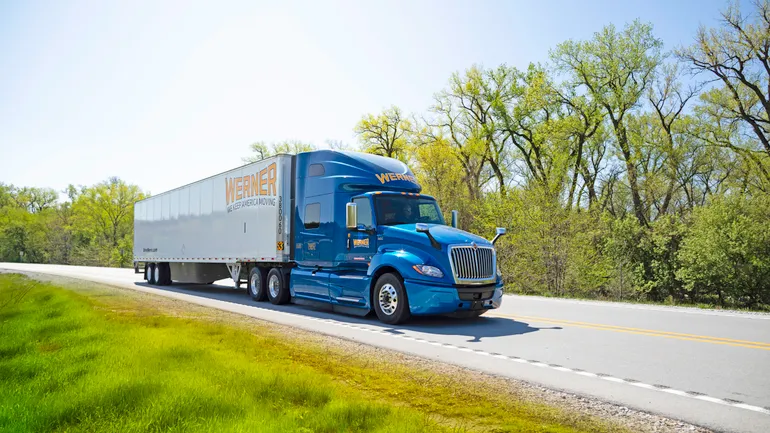Cheyenne Martinez is thankful for the apprenticeship program at Werner Enterprises, which helped her secure a job with the organization.
“I learned about the program while attending Roadmaster Truck Driving School,” she noted. “A recruiter discussed the apprenticeships and Werner’s support for the military, which influenced my decision to drive for the company.”
At the time of joining Werner, Martinez was an active Army reservist.
Various industries have employed apprenticeship programs and internships for worker training and recruitment for years. While both options have their advantages, apprenticeships tend to provide more structured training as well as a salary, according to Dave Harrison, executive director for workforce development at Fastport, a job placement software company.
Internships vs Apprenticeships
Harrison mentioned that while internships may offer compensation, their placements typically last only one to two months and often lack dedicated mentorship. In contrast, apprenticeship programs developed through Fastport, which serves as an intermediary for the Department of Labor, ensure a longer commitment and the presence of a mentor.
“Apprenticeships require more time than internships and include mentorship,” Harrison explained. “[They] focus on job skills and come with payment.”
Werner’s Adoption of Apprenticeships
In response to the driver shortages affecting the trucking industry, many companies, including Werner Enterprises, have integrated apprenticeship programs into their recruitment strategies. Werner began offering apprenticeships in 2006 and expanded its programs in 2015 to include diesel mechanics and recently added a program for transportation managers, according to Greg Hamm, vice president of field and government recruiting.
Martinez graduated from Werner’s truck driving apprenticeship program, though she did not formally apply for it. As a preferred student due to her veteran status, she was automatically enrolled when hired.
Martinez’s Journey and Recognition
Having served in the Army National Guard from 2014 to 2021, Martinez drove for Werner for three years and appreciated the training from her apprenticeship. “The apprenticeship program opened many opportunities for me as a driver,” she remarked. “I became part of the Freedom Fleet due to my driving record and the knowledge I gained.”
Werner’s Freedom Fleet consists of military veterans and active reservists, with trucks honoring firefighters, police forces, and medical teams, she added. Hamm said that recruiting and retaining veterans is one of Werner’s objectives, noting that 20% of their workforce comprises veterans. “We aim to provide them with jobs and support so they can establish a life post-service,” Hamm explained.
The Value of Apprenticeships
Harrison stated that Fastport can help companies interested in launching apprenticeship programs, especially targeting veterans and other demographic groups. His organization aims to enhance logistics and transportation industry apprenticeships by fast-tracking programs at no cost to businesses, with fees covered by the Department of Labor.
“Our process starts with a discovery conversation to help establish a program that minimizes resistance and maximizes effectiveness,” Harrison mentioned. He also noted that if a potential apprentice has completed eight weeks of training at a truck driving school, that training counts towards their apprenticeship.
Hamm emphasized the necessity of support from top leadership when implementing effective apprenticeship programs, stating that executives must comprehend the mechanics of these programs, partnering with available resources to ensure immediate, measurable return on investment.


